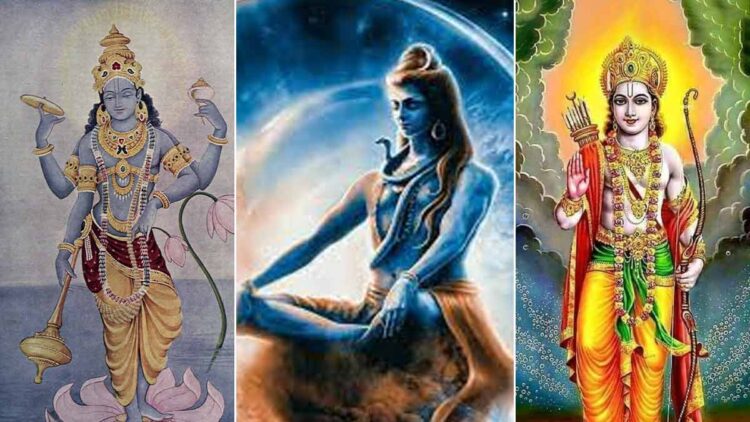In Hinduism, prefixes in front of the name of Gods have special significance. Like Lord Vishnu, Shri Rama, Sri Krishna’s name is common, which shows his divine and revered form. But you have ever noticed that ‘Shri’ prefix is not used with the name of Mahadev (Lord Shiva). There is an interesting and esoteric legend behind it, which gives us a deep understanding of Hinduism. Let us know in this article why ‘Shri’ is not put in front of Lord Shiva, while it is common with the names of Vishnu, Rama and Krishna.
The meaning and importance of ‘Shri’
‘Shri’ is the Sanskrit word, which means prosperity, splendor, good fortune and respect. This prefix is associated with the name of God or Goddess to depict their glory, prestige and divinity. ‘Sri’ is used especially for those gods whose name is associated with the sense of gentleness, beauty and splendor in devotion. Putting ‘Shri’ with the names of Lord Vishnu, Shri Ram and Shri Krishna reflects his gentle, Palanhar and devotional form, which is wished for prosperity and happiness and happiness in worship.
Lack of Mahadev and ‘Shri’ prefix: a secret
Mahadev i.e. ‘Shri’ prefix is not imposed with the name of Lord Shiva. The reason for this lies in his nature and role. The form of Lord Shiva is extremely great, fierce, rigid and broad. He is the god of destruction, who kills the universe so that new creation can occur. Shiva’s character and his Leela are such that he is not a symbol of traditional beauty, splendor and grandeur, but austerity, destruction, yoga and renunciation. Therefore, putting ‘Shri’ with his name will be like neglecting his vast, superpower and nirguna form.
Legendary story: Why is ‘Shri’ with the name of Mahadev?
According to an ancient story, there was a dispute between Lord Vishnu, Brahma and Shiva about the importance of the gods. Each god wanted to say something to show his glory. At that time the importance of the word ‘Shri’ became clear. Lord Vishnu and Brahma accepted the ‘Sri’ prefix with their names because they were a gentle and dear form as the follower and destroyer of the universe. In his devotion, the meaning of ‘Sri’ was prosperity and good fortune. But when Mahadev’s turn came, he said that he is Nirguna, formless and supreme, which is such great and widespread in his form that he does not need any prefix. He himself is beyond ‘Shri’. According to Shiva, his name is so powerful and pure in itself that he does not want the shelter of a particular prefix.
Shiva’s unique form and his glory
The glory of Lord Shiva is different from other gods. He is the master of both destruction and creation. They are considered to be the most different of the Tridevas due to their might and penance. The absence of ‘Shri’ with his name means that Shiva is the higher and formless form, which is beyond traditional beauty and splendor. Additionally, Lord Shiva is considered to be the form of Kaal, Yoga, Tandava and eternal consciousness. They are the basic source of the energy of the universe. Therefore, his name is complete in itself, which does not need any particular prefix.
Instead of putting ‘Shri’, other respectable words for Mahadev
With the name of Mahadev, names like ‘Mahadev’, ‘Shambhu’, ‘Shankar’, ‘Nataraja’ are more used instead of ‘Shri’, which reflect the characteristics of his form. These names describe their powerful, infinite, and destructive form.
Conclusion: Why ‘Shri’ not in front of Mahadev
Thus, ‘Shri’ prefix with the names of Lord Vishnu, Rama and Krishna is respected by his gentleness and splendor. At the same time, the reason for not getting ‘Shri’ with the name of Mahadev is his uniqueness, comprehensive and nirguna form. His name is revered and complete in itself. This thing helps us to understand the depth of Hinduism and the diverse forms of Gods. Every deity has its own glory and role, which can also be understood by his name and address. How did you know how to know why ‘Shree’ is not imposed with Mahadev’s name? Do you know other interesting facts that reflect the diversity of Hinduism? Must share your thoughts with us.










